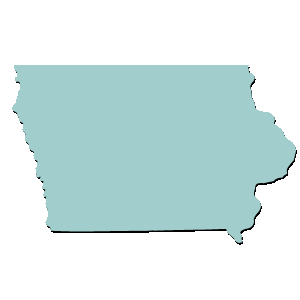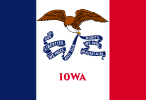Iowa Retirement

There are some advantages to retiring in Iowa, The biggest advantage of retiring in Iowa is that persons over 65 with an income of less than $32,000 are exempt from the state income tax. Iowa residents can also deduct quite a bit of retirement income from their state income taxes.
This exemption only applies to married couples, widow, and widowers in Iowa. To get it a couple would have to file a special Iowa state income tax return called an Alternate Tax Calucation. Even if the couple does not get the exemption they could end up paying a lower Iowa tax rate.
» Speak to an Iowa Retirement Advisor for Free
Other Iowa Income Tax Exemptions
Retired persons in Iowa should definitely take advantage of the Pension Exclusion, which allows single Iowa residents over 55 years to deduct up to $6,000 in money from a pension, annuity, IRA, or any other retirement plan from their state income tax. It also lets married couples filing jointly deduct up to $12,000 in retirement income from their state income tax if one spouse is over 55.
All health insurance and dental insurance, including Medicare Part B and D premiums, can be deducted from state income taxes in Iowa as well. Insurance must be paid on pre-tax basis in order to get this deduction.
All Iowa residents receive a $1,830 individual tax income tax exemption. Married couples filing jointly can receive a $4,500 tax exemption.
Iowa Income Tax Rate
The Iowa income tax rate is 0.36% for a taxable income of less than $1,439, 0.72% for a taxable income between $1,439 and $2,878, 2.48% for taxable income between $2,878 and $5,756, 4.5% for a taxable income between $5,756 and $12,951, 6.12% for taxable income between $12,951 and $21,585, 6.48% for a taxable income between $21,585 and $28,780, 6.8% for a taxable income between $28,780 and $43,170, 7.92% for a taxable income between $43,170 and $64,755 and 8.98% for a taxable income over $64,755.
Iowa State Sales Tax
Iowa charges a State Sales Tax of 6% that applies to most retail sales and many services charges. Most food purchased from grocery stores, medical devices, and prescription drugs are exempt from this tax. Some local governments in Iowa also charge an additional 1% local sales tax so the effective sales tax rate can be higher.
Iowa residents can also be liable for a use tax on goods and services ordered from out of state if the sales tax is not paid. The use tax is currently the same rate as the state sales tax 6%.
Iowa Property Tax
Property tax rates in Iowa vary widely because there are more than 2,000 governments and government agencies that collect property tax in the state. Iowa differs from most states because property values are assessed by the state Department of Revenue. The taxes are collected by county treasurers.
All homeowners in Iowa are entitled to a $4,850 property credit called the Homestead Tax Credit. This credit can reduce property taxes by that amount. A person would have to apply to the county treasurer to claim this credit. Even some persons in nursing homes could be entitled to this tax credit.
There are several other Homestead property tax credits available to Iowa homeowners. Homeowners must apply to the county treasurer before July 1 in order to claim credits for the previous tax year.

| Capital: | Des Moines |
| Cost of Living Rank: | #14 |
| Sales Tax: | 6.0% |
| Income Tax: | 0.36% - 8.98% |
| State Website: | http://www.iowa.gov |